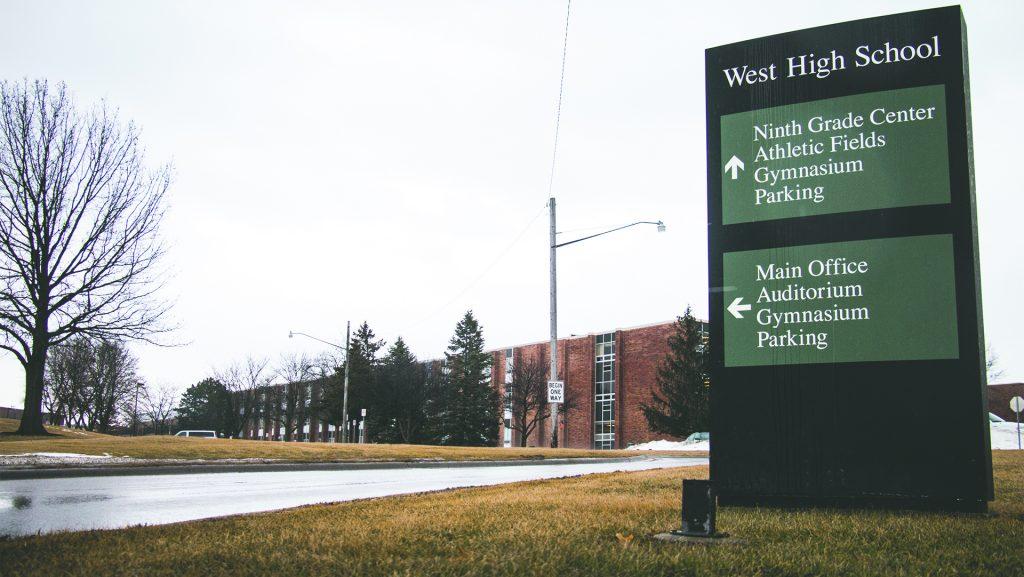The ‘school-choice’ movement limits choice for Iowa’s most vulnerable students.
Jacob Prall
Conservatives may not be pro-choice in the context of abortion (see: heartbeat bill), but they are all about choice when it comes to education.
A “school-choice” bill has been canceled in the state Legislature — at least, for now. House Republicans say they will try to push other “school-choice” initiatives this year. I use quotation marks for “school choice” because it is a euphemism for the defunding of public education via the funding of private education.
Iowa already provides tax credits for private education, an oblique way of subsidizing it. But the new bill is a direct voucher program. Several states have fallen to the allure of “school-choice,” and they’ve paid the consequences. Unfortunately, the movement is picking up steam; Secretary of Education Betsy DeVos is a huge proponent of school-voucher programs.
Defunding public education? That’s a heavy cost. The benefits better be worth it … are they? The short answer is no. The long answer can be divided into two parts: school vouchers don’t do what they say they’ll do, and they are problematic for sociopolitical reasons.
RELATED: Prall: Legislators’ shooting range features education targets
There is an increasingly large body of research on the effectiveness of school-voucher programs — and the numbers aren’t flattering. Indiana and Louisiana, two states who have invested heavily in school voucher programs, are the subjects of new studies conducted by Mark Berends of the University of Notre Dame and R. Joseph Waddington of the University of Kentucky. Low-income students are often touted by conservatives to be the true beneficiaries of school-voucher programs. But the studies found that student test scores actually backslid after transferring from public to private school. This decline continues for two years before students start improving — and trying to catch up to their public-school counterparts.
It seems the true beneficiaries of school-voucher subsidies are those who could already afford to send their children to private school. Should we defund our public education to subsidize well-off households?
And what about those pesky sociopolitical reasons I mentioned earlier? Well, for starters, a large number of private schools in Iowa, and across the U.S., are religious. School-voucher programs take money away from public institutions to fund religiously affiliated schools. Should taxpayer money be funneled to religious institutions?
RELATED: Bill introduced to allow Iowa schools to teach Bible literacy as social studies elective
Further, problems arise when voucher students actually apply to different schools. An NPR report found numerous instances of students being turned down for having disabilities or being LGBTQ. School vouchers may not be intentionally discriminatory, but they become inherently discriminatory when private institutions can pick and choose their students — something that public institutions cannot do.
To recap, wealthier families receive subsidies they don’t need, low-income students are worse off in their new private schools, and public money ends up with religious or discriminatory educational institutions. Oh, and our underfunded public education system is further defunded.
A story by The Gazette followed a woman whose child began attending a private school after Polk Elementary School (Cedar Rapids) was shut down because of a lack of funding. Republicans might see this and call for a school-voucher program to help the woman pay for a private education.
But what about the hundreds of other students who lost their school? Not all of them will be able to afford private education even with tuition vouchers. A public school closing down shouldn’t be interpreted as a reason to fund private schools. Our mission should be to properly fund our public-education system — not systemically underfund it, as is the case in Iowa.
RELATED: Guest Opinion: School District needs farmers
At the end of the day, private schools simply do not provide the same social and equitable benefits that public schools do. Public money belongs in public schools, where all kids can come to be educated, where affordable schooling is the norm, not the exception. School vouchers defund the public-education system and provide more problems than solutions.



